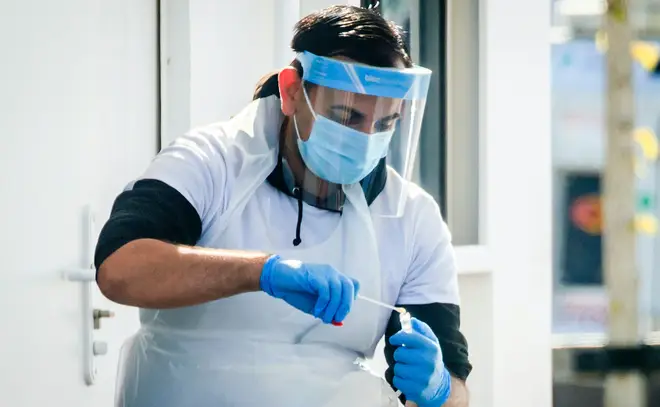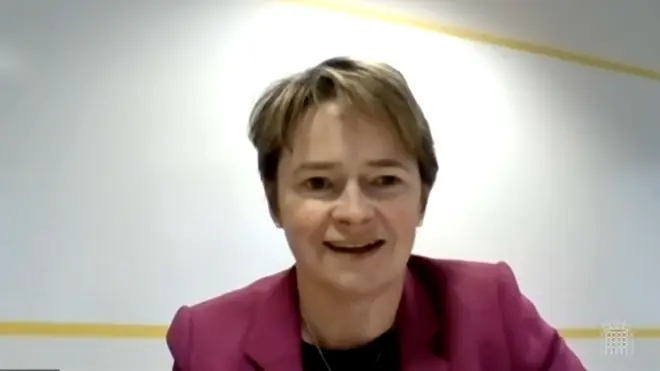
Iain Dale 10am - 1pm
3 February 2021, 12:27 | Updated: 3 February 2021, 12:59

Baroness Dido Harding, head of NHS Test and Trace, has said an average of 20,000 people - possibly more - were failing to self-isolate each day last week when contacted.
Taking last week's total number of cases and contacts - around 700,000 - she the latest research suggested 20,000 a day were not self-isolating.
Former health secretary Jeremy Hunt, quizzing Baroness Harding on Wednesday, said it was a “huge number of people every single day who could be passing on the virus who are not isolating in the way that we need them to.”
"Thousands of people every day is enough to restart the pandemic," he added.
READ MORE: One dose of Oxford Covid jab can 'reduce transmission of coronavirus by two thirds'
READ MORE: Matt Hancock tells LBC how film Contagion alerted him to global vaccine scramble
But Baroness Harding told the Science and Technology Committee her biggest concern is the people who feel ill but do not come forward for testing.
She said: "Could I add a slight complexity to your calculation which actually might well make your number go up a bit, which is that's the proportion that we know about.

"My biggest concern about people not isolating is not actually the 20% of people, let's say, who are not following that instruction.”
Asked by Mr Hunt about why she thinks people are not isolating when they should be, Baroness Harding said one element is communication - people not understanding and not being clear about what they should and should not do.
She said: "The clearer and simpler the guidance, the easier is it for people to follow it."

Top virologist discusses South African Covid variant
She said the second element is people finding it "practically impossible" - not having enough food in the fridge, having care responsibilities, having to collect a prescription.
"Across the country, local authorities have been doing some fantastic work in providing practical support, either directly or through voluntary groups and other third-sector providers," she said.
The third reason she gave was the issue of financial support - people who must go out to work as they cannot afford to isolate.
She said it would need to be the case that any financial incentives in place "genuinely drives the right behaviour, rather than any unforeseen consequences".

Matt Hancock inspired by Contagion in vaccine strategy
Baroness Harding's fourth reason for people not isolating was mental health - that people find it "really difficult and hard".
She said there is "undoubtedly more we can do" to help people cope with the mental challenges of self-isolation.
Baroness Harding also revealed on Wednesday that the system is on track to reduce the R number in high prevalence areas by between 0.6 and 0.8 by the end of March.
But she told Commons Science and Technology Committee: "It is impossible for Test and Trace to single-handedly fight the disease.
"It is always going to be one element of our fight against Covid, not the silver bullet."